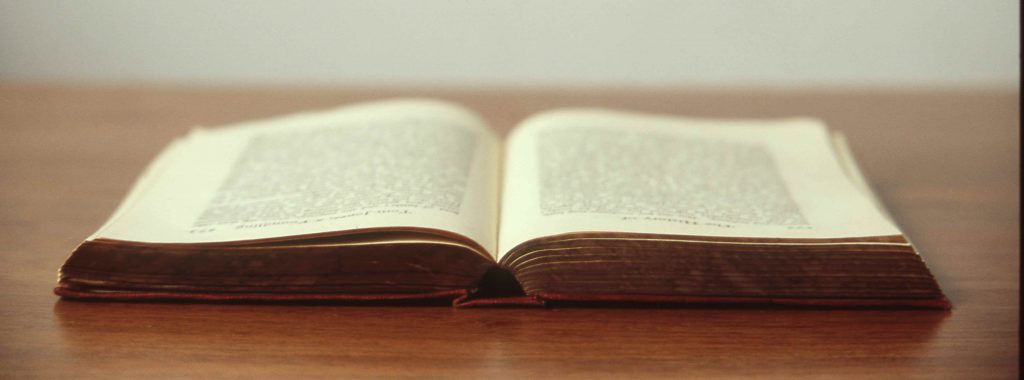On My Shelf helps you get to know various writers through a behind-the-scenes glimpse into their lives as readers. I talked with Russell Moore, president of the Southern Baptist Convention’s Ethics and Religious Liberty Commission, about what’s on his nightstand, books he re-reads, his favorite fiction, and more.
What’s on your nightstand right now?
On my nightstand right now are the following books: Walter Kirn, Blood Will Out: The True Story of a Murder, a Mystery, and a Masquerade; Arthur W. Hunt III, Surviving Technopolis: Essays on Finding Balance in Our New Man-Made Environments; Andrew Smith, Grasshopper Jungle; Carlene Bauer, Frances and Bernard; John Updike, Buchanan Dying: A Play; Paul Taylor, The Next America: Boomers, Millennials, and the Looming Generational Showdown; and William G. McLoughlin, ed., Isaac Backus on Church, State, and Calvinism, Pamphlets, 1754-1789.
What are some books you regularly re-read and why?
I find that I regularly re-read almost the entire C. S. Lewis corpus, and I’m often surprised by how much of his thought I’ve absorbed while forgetting he was the one who taught me. I regularly re-read Walker Percy’s The Moviegoer, and his essays, especially those in Signposts in a Strange Land. I also return often to Irenaeus’s On the Apostolic Preaching and Augustine’s Confessions and The City of God. I re-read J. Gresham Machen’s Christianity and Liberalism rather often, and always find it prophetic and timely.
What biographies or autobiographies have most influenced you and why?
John Leland’s biography is very influential on my view of the relationship between the kingdom of God and the kingdoms of this age. Other influential biographies or autobiographies for me include Thomas Merton’s Seven Storey Mountain, Brad Gooch’s biography of Flannery O’Connor, Willie Morris’s North Toward Home and New York Days, and Peter Brown’s Augustine of Hippo. I like biographies and memoirs of musicians, too: Terry Teachout’s Pops: A Life of Louis Armstrong, David Cantwell’s biography/cultural analysis of Merle Haggard, and Michael Streissguth’s Outlaw: Waylon, Willie, Kris, and the Renegades of Nashville are some I’ve enjoyed in recent days. For whatever reason, I’m drawn to the biographies or autobiographies of losing presidential candidates, whether I like those candidates or not, ranging from William Jennings Bryan to Henry Wallace to Barry Goldwater to Hubert Humphrey to George Wallace to Walter Mondale. This isn’t technically a biography or autobiography, but I return often to the correspondence between Walker Percy and Shelby Foote.
What are your favorite fiction books?
My favorite fiction books include Wendell Berry’s Hannah Coulter and Jayber Crow, Walker Percy’s The Moviegoer, John Kennedy Toole’s A Confederacy of Dunces (which is the funniest book I’ve ever read, and I re-read it often if for no other reason than to hear the voices and accents of my home region—accents that are fast erasing, even most lamentably long ago from my own voice, in a culture-flattening America), Eudora Welty’s short stories, and Graham Greene’s The End of the Affair. I also like John Updike, Anton Chekov, and Tennessee Williams.
